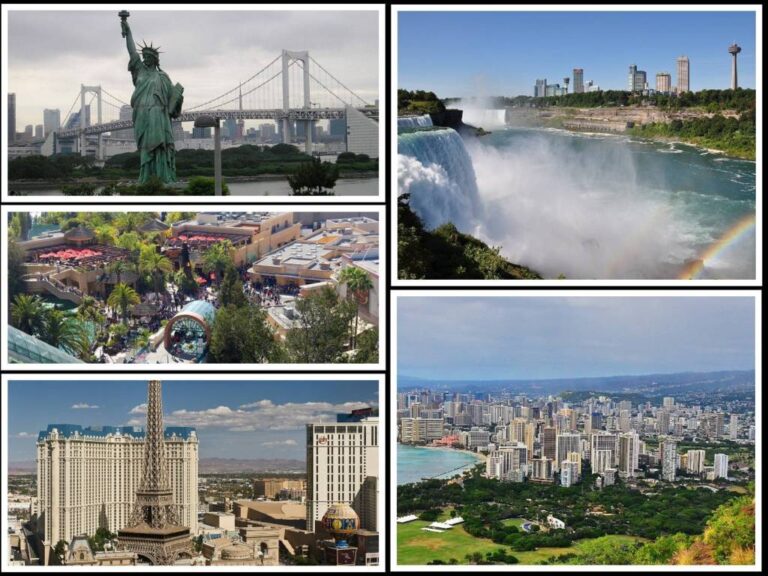Tourism is the business of providing services to tourists. The tourism industry is worth billions of dollars and employs millions of people around the world. Tourism can be a great way to see the world and experience new cultures. It can also be a huge boost to the economy of a country or region.
Tourism is the process of traveling for recreation, business, or leisure. There are many different types of tourism, including but not limited to adventure tourism, cultural tourism, eco-tourism, medical tourism, and religious tourism.
The benefits of tourism are many and varied. For businesses, it can provide new customers and opportunities for growth. For individuals, it can offer a chance to experience new cultures and lifestyles. Tourism as a course can also help to promote international understanding and friendship.
There are some negative aspects of tourism as well, such as the impact on the environment and local communities. In some cases, tourist destinations can become overwhelmed with visitors and lose their charm. It is important to be aware of these potential problems before embarking on a trip.
Tourism as a course
A degree in tourism can lead to many different career paths. With a degree in tourism, you can work in the travel industry, hospitality industry, or even the event planning industry. There are many different types of courses that you can take to get a degree in tourism. This article will give you a complete overview of tourism as a course.
What courses are available?
There are many different types of tourism as a course for those interested in pursuing a career in tourism. These include introductory courses that provide an overview of the industry, as well as more specialized courses that focus on specific aspects of tourism. There are also many opportunities to study abroad, which can be a great way to learn about different cultures and gain first-hand experience in the tourism industry. Some of the most popular courses include hotel management, event planning, and tourism marketing.
Original 7 wonders of the world
Hotel management courses typically cover topics such as front office operations, housekeeping, and food and beverage service. Event planning courses often discuss topics such as venue selection, vendor management, and budgeting. Tourism marketing courses usually touch on topics like market research, brand management, and advertising. No matter what you choose to take tourism as a course, you’ll likely gain valuable skills and knowledge that can help you in your future career in tourism.

Why study tourism as a course?
Tourism is one of the most popular industries in the world and continues to grow each year. There are many reasons to study tourism as a course, but here are some of the most important ones:
Tourism is a global industry – by studying tourism as a course you will gain an understanding of how the industry works on a global scale. You will learn about different cultures and how to cater to the needs of international travelers.
Tourism is an exciting industry – if you love to travel and explore new places, then tourism as a course may be perfect for you! You’ll get to see the world and help others have amazing experiences while doing it.
Tourism offers many career opportunities – there are countless job possibilities within the tourism industry, so no matter what your interests or skillsets are, there’s likely a role that’s perfect for you.
The benefits of tourism as a course
While the tourism industry has been one of the hardest hit by the pandemic, it is important to remember the many benefits that tourism brings. Tourism supports local economies by generating income and creating jobs. It also helps preserve cultural heritage and natural resources.
In addition, tourism provides opportunities for people to learn about new cultures and experience new things. It can also be a force for good, promoting understanding and tolerance between people from different backgrounds. So while the current situation is difficult, it is important to remember the many positive aspects of tourism and its potential to bring people and communities together.
The future of tourism
This growth will be driven by many factors, including the continued globalization of the world economy, the rise of the middle class in developing countries, and the increasing popularity of travel as a leisure activity. The tourism industry is one of the world’s largest and most rapidly growing industries.
As economies around the world become more interconnected, there will be an increasing demand for travel and tourism services. This demand will be driven by both business travelers and leisure travelers. Businesses will increasingly need to send employees to different parts of the world to conduct business, while more and more people will have the disposable income to take vacations abroad. So selecting tourism as a course will help you a lot in your future.

Tourism and economy
The relationship between tourism and the economy is a complex one. On the one hand, tourism is a major source of revenue for many countries, and on the other hand, it can also harm the economy.
The economic impact of tourism can be both positive and negative. On the positive side, tourism can create jobs and generate income for businesses and governments. It can also help to improve infrastructure and services in an area. On the negative side, tourism can lead to inflation, as well as environmental damage.
To maximize the positive economic impacts of tourism, governments and businesses need to work together. By collaborating, they can ensure that tourist dollars are spent in ways that benefit the local economy, while also minimizing any negative impacts. Tourism can have both positive and negative impacts on the environment. It can help to educate people about the natural world, which in turn can help to protect certain species from extinction. However, tourism can also have devastating impacts on the environment.
5 states that encourage ecotourism in India
As many people visit areas to see natural beauty, they can often leave litter or damage the environment in other ways. New destinations will continue to open up as air travel becomes more accessible, and innovative technology will make booking travel easier than ever before.







Comments are closed.